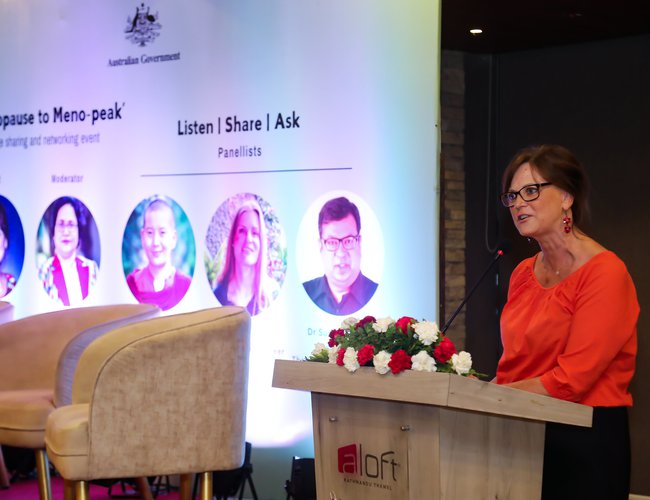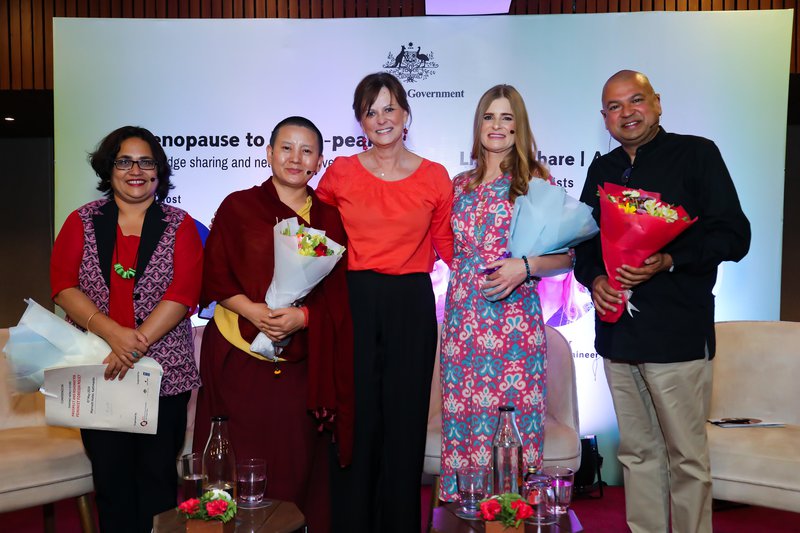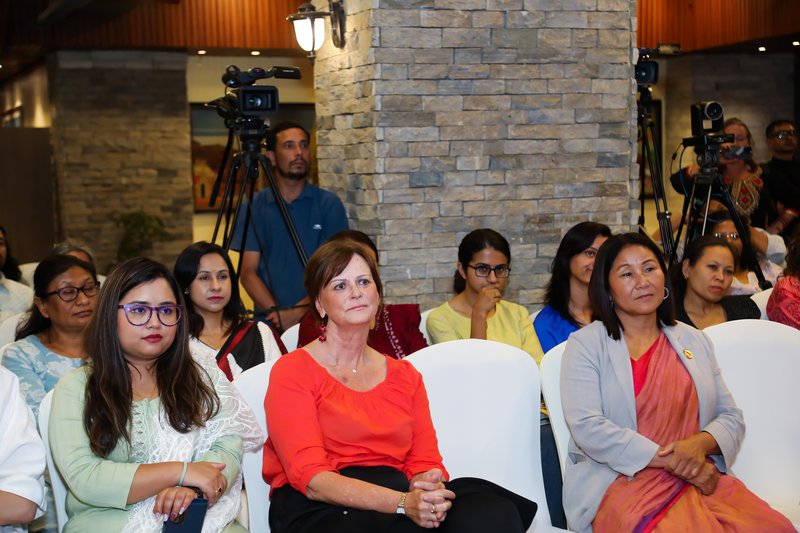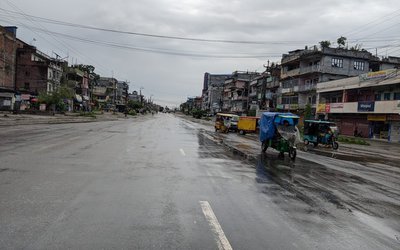
The Australian Embassy hosted a public seminar, Menopause to Meno-peak, in Kathmandu with high profile advocates including singer and philanthropist, Ani Choying Drolma, and Australian mountaineer, Allie Pepper, to raise awareness about menopause.
Australia Awards alum and Tribhuvan University’s Lecturer of Sociology, Dr Neeti Aryal Khanal, and President of the Himalayan Dialogues, Dr Sunoor Verma, joined the panel discussion which was attended by government, diplomatic, civil society, media and members of the public.
Introducing the event, Australia’s Ambassador to Nepal, Felicity Volk said the embassy had organised the seminar to draw attention to issues relating to menopause and perimenopause, including women’s health and wellbeing, access to comprehensive and individualized health care and workplace supports.

She said, “In Nepal, as in Australia, there is very little public discussion of menopause even though half our populations experience its symptoms. Menopause is a natural process, but there is a paucity of research and informed medical support. Further, the stigma that attaches to women at this stage of their lives impacts their professional lives and mental health.
“That’s why I’m so pleased to see role models like Ani Choying and Allie Pepper opening up public conversations and demonstrating that women at all stages of their lives are powerful, inspiring and have so much to contribute to their communities.”
Renowned mountaineer Allie Pepper said she hoped her campaign, Respect above the Clouds, a challenge to climb all 14 peaks without supplemental oxygen in under three years, would be an inspiration to other women experiencing menopause.
Pepper said, “When I suffered severe and debilitating menopause symptoms I was unable to get help from my doctor. My symptoms included depression, night sweats, insomnia and brain fog. The symptoms affected my career, my relationship and my mountaineering aspirations. It took me months to find a doctor educated in menopause. When I found the right treatment it gave me my life back. There is a negative stigma attached to women at this time in their life. We must talk more about menopause in our society and acknowledge how it affects women in all aspects of their life.”

The dialogue moderator, Dr Aryal Khanal, said the seminar would help Nepal’s government and private sector to create workplaces that support women to contribute productively to economic activity throughout their lives.
“The time when menopause kicks in is adjacent to the time when women are at the peak of their careers. Most women go through menopause silently. And, as more and more women join the workforce, employers at public and private sectors, and formal and informal sectors need to be ready and equipped with resources to help women have a smooth transition toward menopause so that they are able to continue their professional journey and are able to reach leadership positions.”
“In a predominantly patriarchal society, where women are questioned about their work in almost every field, it becomes difficult to share their individual menopausal journey. This often takes a toll on the women’s mental health, in addition to their physical health. Therefore, a women-friendly culture needs to be developed in workplaces. This has to be addressed through reforms in policies and changes in attitude, behavior and workplace culture.
Panelist Dr Sunoor Verma, an international health communications expert said, "By educating boys and men about their own sexual health, we help them better support the entire spectrum of women's health. Preaching to the converted hasn't helped enough; we must engage boys and men on women's health not as a gender but as a societal emergency. Investing in women's health is an economic imperative for any country seeking prosperity."
Referring to Australian research, Ambassador Volk reiterated that workplace support for menopausal women was not just an issue of human rights but an economic imperative. She said, “Economic modelling tells us that if even just 10 per cent of Australian women retired early because of menopausal symptoms, it would equate to loss of earnings and superannuation of more than A$17 billion.”
- Nepal-UK Tech Forum Held
- Jul 06, 2025
- Hari Sayani or Devshayani Ekadashi 2025: Day Of Tulsi Plantation
- Jul 06, 2025
- Siddhababa Tunnel Makes A Major Milestone
- Jul 06, 2025
- Weather Forecast: Generally Cloudy Across The Country With Heavy Rain At One Or Two Places Gandaki, Bagmati and Koshi Provinces
- Jul 06, 2025
- India’s External Affairs Ministry’s Senior Officials Says Indo-Nepal relations are ever expanding
- Jul 05, 2025















